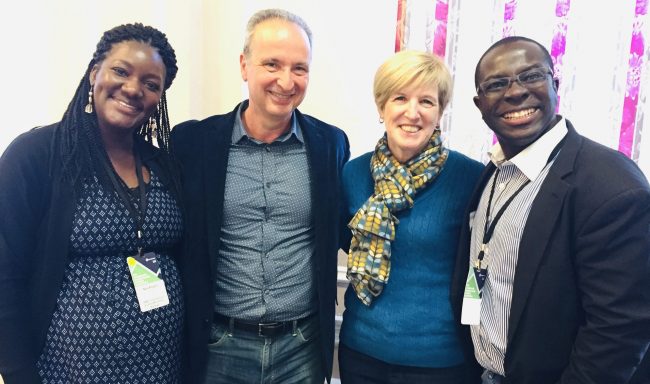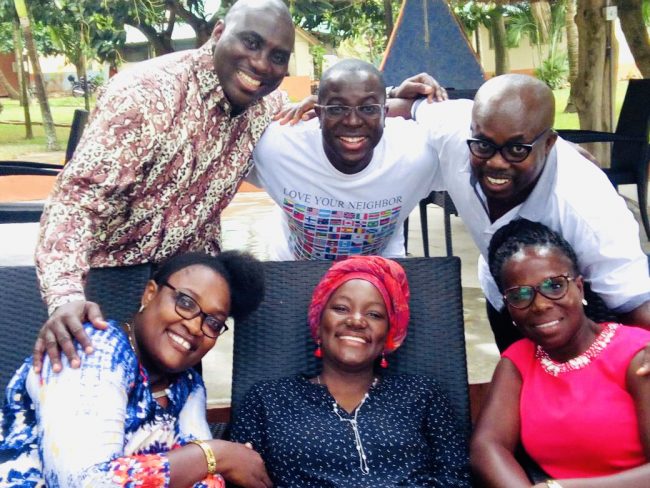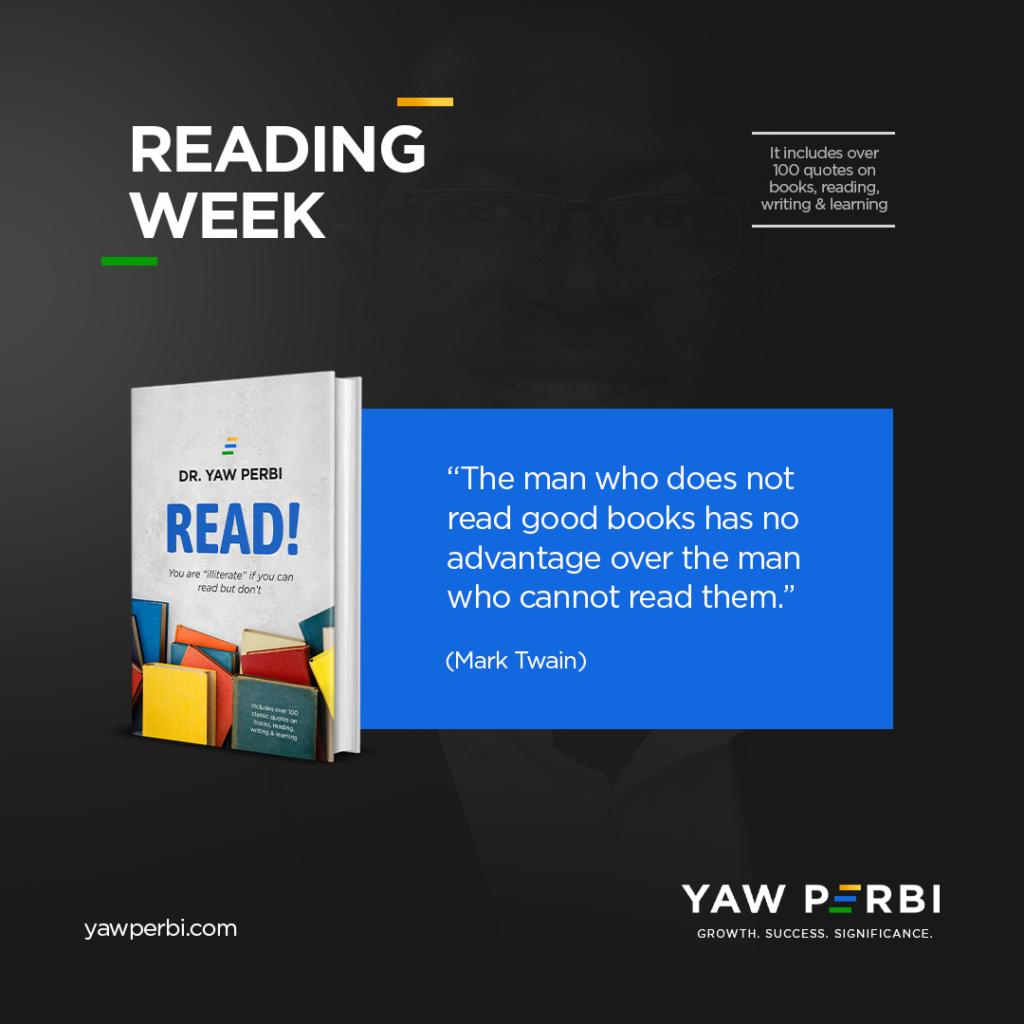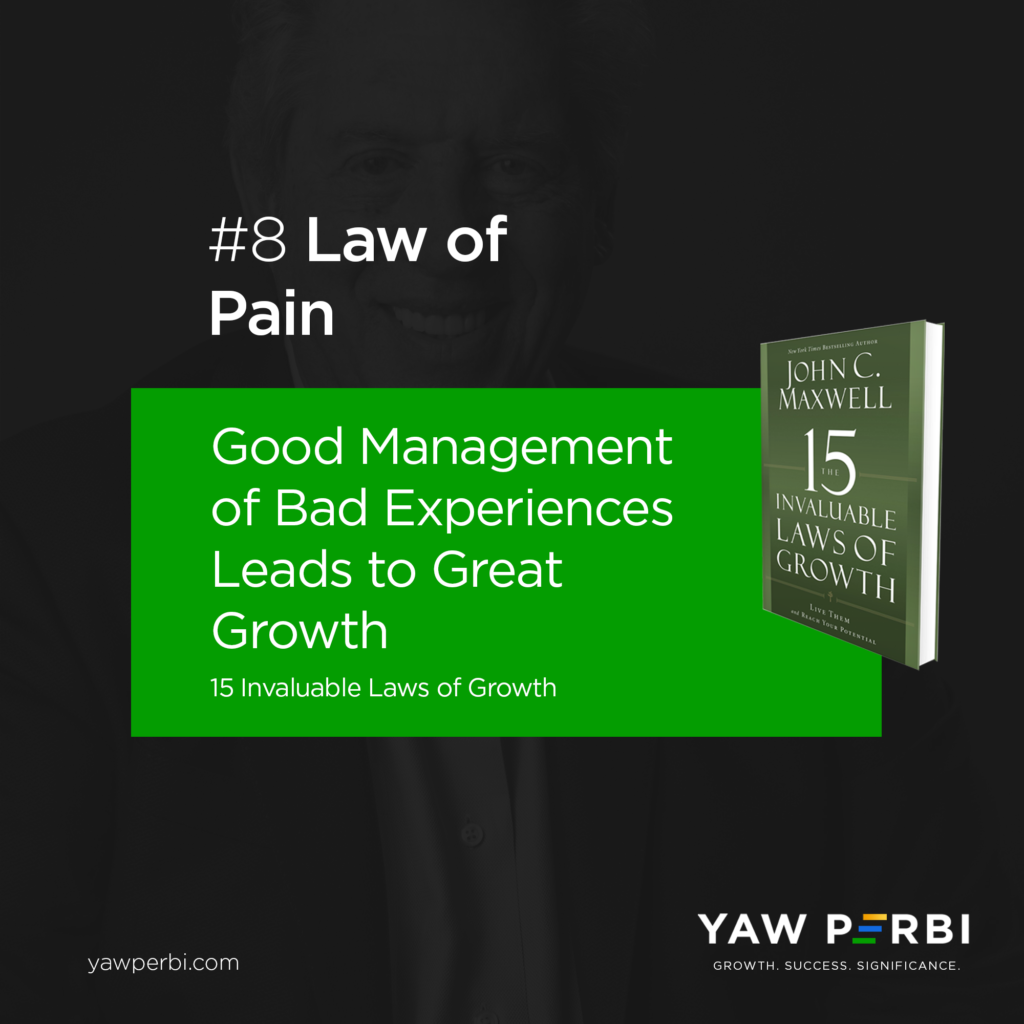
YAW PERBI Welcomes New Chief of Staff
“I am honoured to join YAWPERBI as Chief of Staff,” says Mrs. Araba Andoh (nee Torson). “I have had 3-4 years collective experience working behind the scenes in organizing, prioritizing, advising and positioning leaders as “superhumans,” she adds.
Araba holds a BSc in Business Administration from Ashesi University (Ghana) and an MSc in International Business from the University of Warwick (UK).
With a good dose of humour, she likes to describe her personality as “vanilla ice cream with a dash of cinnamon spice on a crunchy cone. Like vanilla, I may come across as simple at first glance. Just as vanilla serves as a vivid reminder of youth and innovation, I am youthful and bursting with creativity.”
Wait. She isn’t done yet: “The subtle taste of cinnamon reveals how accurately the spice was added in proportion, depicting my hunger for detailed perfection. The softness of the ice cream on a crunchy cone exterior portrays me perfectly as a tough nut who is difficult to crack and works extremely well under pressure. Again, like an ice cream, it takes me a while to warm up to people, but once I do, I melt into their hearts.”
Help us welcome and celebrate ARABA (Awesome. Reliable. Affable. Bold. Affectionate.)
Here’s to more #leadership #growth, #success and #significance at #YP.
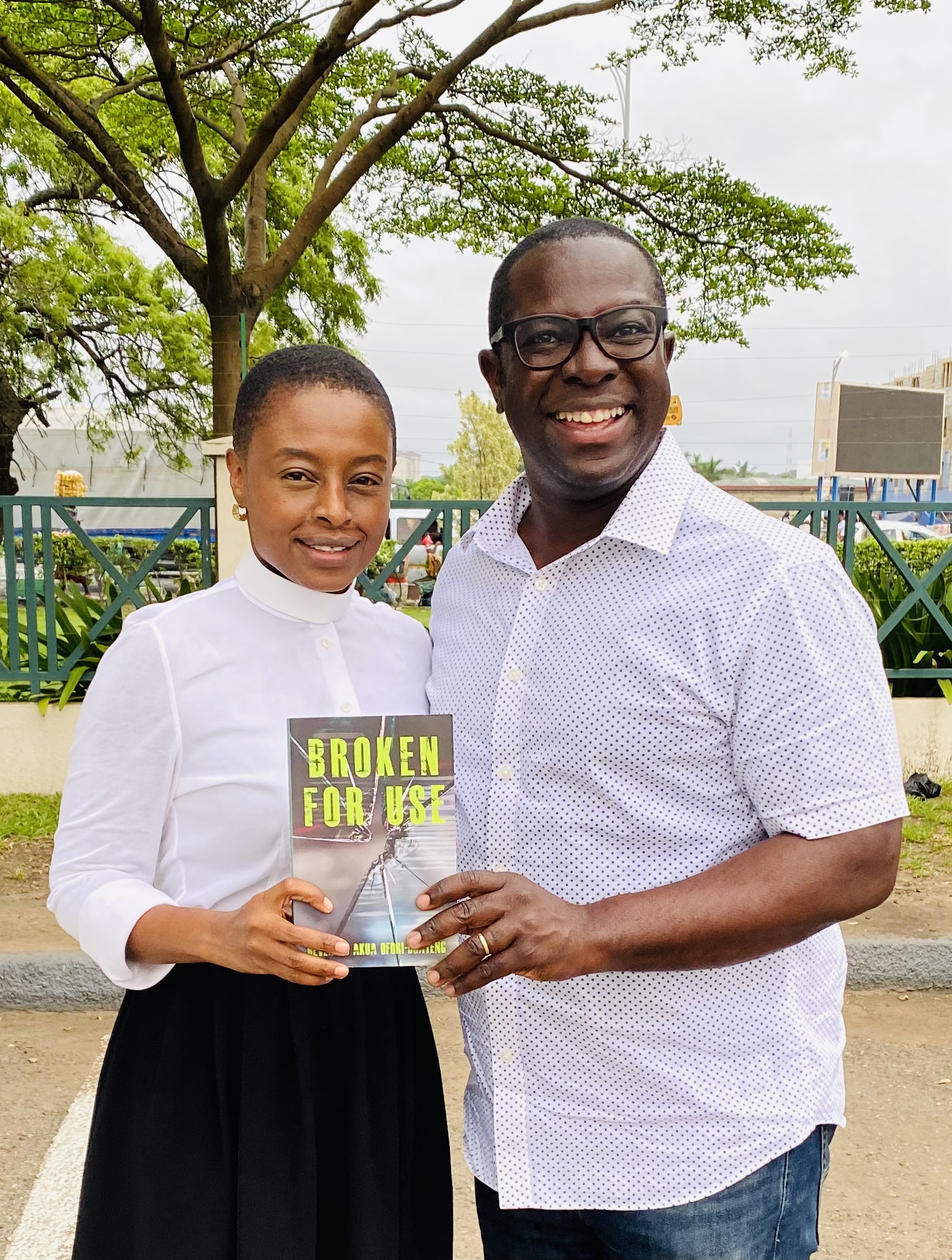
Leading From Life Story
Leadership is an interesting phenomenon. It is a more personal phenomenon than many people realize. I have been studying leadership for a while, at least for the last twenty-five plus years, and one of the greatest discoveries for me has been that leadership is not something ‘up there’ or ‘out there.’ The greatest leaders have been those who have been able to deeply reflect on their life stories and reframe them, leveraging their life stories to lead.
Growing up in Ghana as a student of leadership, a lot of the apt illustrations and gripping stories I consumed were foreign, mainly coming from Western literature and audiovisuals. A case in point is Howard Schultz, CEO of Starbucks, as one of the best examples of how the corporate success of Starbucks is as a result of the reframing of his own life story, especially his dad’s misfortunes. Says Mr. Schultz himself, “The reservoir of all my life experiences shaped me as a person and a leader.” Now, I am really excited that many more Africans are telling their leadership stories and writing, putting them in print. Finally, the lions are learning to write their own tales of the hunt.
MEET THE MECHANICAL ENGINEERING MBA
One of the CEOs in Ghana whose life story has taken a firm grip on me is a young lady I’ve just come to love. First, she’s just an amazing human being, very authentic. Then Akua is a professional in her own right, with a Masters in Mechanical Engineering, an MBA, a third seminarian masters and actually studying for a Ph.D as well. But the icing on the cake for me is this: she is a priest too!
The fascinating story of Rev. Akua Ofori-Boateng is chronicled in her thrilling autobiography aptly entitled ‘Broken For Use.’ It is raw, real, and very vulnerable—perhaps the most vulnerable Ghanaian, or maybe even African, autobiography that I have read.
Akua is CEO of Aequitas, an organization desirous to see every youth find and pursue their passion. She and her team do this by providing internships and safe learning spaces for youth to explore, discover their gifts and find their purpose. And when you have read her story—the intriguing tale of a privileged, middle-class girl yearning for approval—you will immediately understand why she would found and lead such an organization—from her life story!
WHY LEADING FROM LIFE STORY MATTERS
The passion and purpose of your leadership would come from your life story. If you are going to have dedication and commitment to leadership, it will need to come from leading from your life story. If you are going to have inspiration and motivation, it comes from your life story. If you are going to have a true north for your leadership, it comes from your life story.
I am exceedingly glad to be collaborating with her at YAW PERBI to impact youth and C-Level Executives because authentic leadership comes from leading from your story. Watch out for opportunities for collaborative training, coaching, workshops, publishing etc. with the Rev. when it comes to this whole area of authentic leadership. Just before wrapping up lunch with her the other day, I wanted her to share with you why she wrote this book and what it means for her life and leadership. You may watch the short, unrehearsed and upstaged video I captured here or read a transcript of her convincing spiel below:
Rev. Akua Ofori-Boateng: I wrote this book because when I was young and struggling with my own insecurities and challenges, I didn’t have any book like this to read, anything to tell me of that what I was going through was normal and that anybody had been through such. Certainly no one my age was talking about it from being that age. I wrote this so that young people who are struggling and unable to forgive themselves and have made some of the mistakes I made would recognize that we all make mistakes and that there is life after mistakes. The life after mistakes is a good life and a fulfilling one and a life that can benefit other people.
Dr. Yaw Perbi: How has your life story shaped your leadership?
Rev. Akua Ofori-Boateng: My life story and my leadership are inseparable. For me, I lead from a place of what I have experienced. And I want the young people to understand that you are not talking to perfection. You are talking to a person who is giving you advice based on their own issues, mistakes they have made and overcome so I lead from a place of authenticity. I got it wrong and now I’ve got it right; and if you got it wrong, you can get it right too.
CONCLUSION
Notable leadership experts from Bobby Clinton to Bill George have divided life into phases, usually three or four. It takes deep reflection to draw these out for oneself. The power of leading from life story is one of the many reasons why self-awareness is a sine qua non in leadership. There is no authentic or deep leadership without knowing one’s life story and reframing it as a source of inspiration, dedication and commitment, passion and purpose for your leadership. Your best leadership will not come from trying out a long list of characteristics of great leaders or even emulating outstanding ones, but from deeply reflecting on and leveraging your own life story. It will come from ‘in here’. The raw material needed for great leadership is found in your own life story. What a fascinating paradox that the outward journey of serving and influencing others first begins with a leader’s own journey inwards and backwards, drawing from the power of their own life story.

Leadership Is Not About You (And Not About Now)
Here I am 40,000 feet above sea level trying to piece together in readable form, a short video I shared last week on “Leadership is Not About You.” I’m en route back from an East Africa launch of my new co-authored book that took me to Nairobi (Kenya), Dar es Salaam (Tanzania) and Kigali (Rwanda), with a brief transit in Addis Ababa (Ethiopia). It’s been a while since I shot these PEP Talk videos because all roads have been leading to the launch of the movement and the said book, Africa to the Rest. The West Africa launch in Accra on March 31st had been so successful, buoying my team and me towards where the African sun rises for part two.
COMING HOME
Leadership is not about you, it’s about those you serve; it’s not about now, it’s about tomorrow. This truism landed in my heart as I touched down in Nairobi to a very warm welcome, ‘Karibu Kenya’ (welcome to Kenya). In Ghana we say, ‘Akwaaba.’ Ghana and Kenya have a diplomatic arrangement which allows citizens to visit each other’s countries without a visa. How wonderful. And this time also, the immigration officer did not ask me, “Why are you here, what’s the purpose of your visit?” Come to think of it, why would he? Who asks anybody, “Why are you coming home?” I’m home, Kenya is home.
That really is how the whole continent should look like yet traveling across Africa can be a nightmare. I am looking forward to the day when we do not need visas to travel across the second largest continent on the planet. I earnestly envisage the time when we’ll not have to change several currencies to travel across Africa. I am looking forward to the time when with one passport, one can fluidly go to all the 50 plus countries on the motherland. And that, my friend, will take tremendous leadership. How come I did not need a visa to Kenya, that all the way from Ghana, six hours flight away, I could just enter Kenya unhindered by red tape? Because at some point, once upon the time, a certain leader (or group of leaders) thought that was something great we could do for the mutual benefit of our peoples, for every Ghanaian and Kenyan.
As the driver was taking me from the Jomo Kenyatta International Airport (JKIA) to Severine Cottages in Karen (a suburb of Nairobi) where I was scheduled to lodge, courtesy of the owner Mary Ngechu, a YAW PERBI coaching client, we were having a conversation amidst a bit of road congestion from time to time. There had been some redirection of traffic in Nairobi because Kenya had just lost their third president, Mwai Kibaki, and this was preparation day for the funeral in the morrow. The next day was a holiday for his state burial, and several continental dignitaries were expected to arrive via the JKI airport. This driver was full of praise for the late head of state. “He was a good man, he built this highway we’re on, started free primary education for every Kenyan child…” he did this, he did that…. he was a good man. Far from perfect, it seemed from the narrative that Kibaki understood that his leadership was not about him, but about those he can been given influence to serve; and that his leadership wasn’t just about then (2002-2013), but about tomorrow.
NOT ABOUT YOU
Leadership is not about us; it’s not about you. It’s all about those we serve and influence towards some shared, noble purpose. I find it very sad when we have leaders, especially on our continent, who wants to loot all the wealth they can get, grab all they can eat and can the rest for tomorrow for their children and grandchildren. But leadership is about the people, for the people.
The year 2063 is when the leadership of Africa is hoping to have one passport and this free, unhindered movement of people. It’s too far! By 2063, I will be 85 years old, if the Lord wills and if He tarries. Come on, things have to be sooner, much sooner. I am excited about the crucial interventions of YAW PERBI Executive Education, BCA Leadership, Africa Leadership Initiative, The HuD Group and all others working on the continent to catalyze authentic, effectual leadership because everything does rise and fall on leadership. Leadership is indeed cause, everything else is effect, and l felt that right that morning when arrived in Kenya.
AFRICA CONSOLIDATING
I can confidently tell you that the dream of one Africa, one passport, no visas can happen. It took a certain Jean Monnet to get the European Union going in that direction (I remember that so vivildly from our Africa Leadership Initiative/Aspen Institute readings from over a decade ago). The ability to not only fly from the top of Tunisia to the tip of South Africa, or from the cusp of the Cape Verde peninsula to the extreme edge of Mauritius unfettered and unvisa-ed, but even drive across the length and breadth of the continent is a dream I share with many others on the continent and in the diaspora. Imagine no need to change several SIM cards, no need for consecutive currency exchanges and having eight different specimens of shillings in your breaking purse. This is the Africa we want; yea, even the Africa we need.
For sure, this will take visionary, effectual leadership. Remember, leadership is not about us, it is about those we lead and their aspirations, even that of those who would come tomorrow. Are you pepped up to lead and leave a lasting legacy? Leadership is not about you, it’s about those you serve and influence towards a shared, noble purpose. It’s not even about now; it’s about tomorrow. Let your leadership count years from now, thousands of years from now, even into eternity.

THE PRESENCE ~ Part 2 (of 3)
17When Pharaoh let the people go, God did not lead them on the road through the Philistine country, though that was shorter. For God said, “If they face war, they might change their minds and return to Egypt.” 18So God led the people around by the desert road toward the Red Sea. The Israelites went up out of Egypt ready for battle. … 20After leaving Sukkoth they camped at Etham on the edge of the desert. 21By day the Lord went ahead of them in a pillar of cloud to guide them on their way and by night in a pillar of fire to give them light, so that they could travel by day or night. 22Neither the pillar of cloud by day nor the pillar of fire by night left its place in front of the people. (Exodus 13)
THE PRESENCE FROM EGYPT
God will not necessarily lead you through the shortest routes in 2022 but the best routes, according to His good, pleasing and perfect will. God was Israel’s captain as they exited Egypt to possess the Promised Land. A captain is a commanding officer of a ship, someone in command or a leader of a group (like a football team). This captainship is clearly captured in phrases like “God did not lead them…” (v. 17); “So God led the people…” (v. 18); “By day the LORD went ahead of them… to guide them” (v. 21); “…in front of the people” (v. 22).
And they were many, an estimated 2 million of them! It is no wonder they are described as a host (like stars or a vast army). A host is “a multitude or great number of persons or things.” God was the General, Guard & GPS of this ginormous group, host!
THE PRESENCE IN ENGLAND
It is this amazing story in Exodus 13 that captured the imagination of Charles Wesley (1707-1777), the brother of the founder of Methodism (John Wesley) to pen those words in 1762 (the original words are in bold, my brief commentary is in italics):
Captain of Israel’s host, and Guide
Of all who seek the land above,
The same God who was Captain of the Israelites exiting Egypt to the Promised Land called Canaan is the Guide of those of us who eventually want to exit Earth to the Promised Land above we call Heaven;
He can be the General of those of us exiting 2021 and wanting to enter the Promised Land called 2022. For he is the same yesterday, today and forever.
Beneath Thy shadow we abide,
The cloud of Thy protecting love;
The shadow, cloud, pillar of fire—these are all metaphors of THE PRESENCE.
Will you abide (John 15) in THE PRESENCE for intimacy (love), protection, provision, piloting (guidance), production (fruitfulness)…
Our strength, Thy grace, our rule, Thy Word;
Jesus Himself says, “my grace is sufficient for you for my power is made perfect in your weakness in 2022” (2 Corinthians 12:9).
What laws or constitution or playbook will you live by in 2022? How about the Basic Information Before Leaving Earth (Bible), which itself is already saturated with THE PRESENCE?
Our end, the glory of the Lord.
Is God’s glory the purpose and end goal of your life or your own idea of what is cool and successful? God’s own glory is God’s mission!
It is no greatness if it brings God no glory!
A WORD ABOUT GOD’S GLORY IN UNEXPECTED PLACES & WAYS
God’s glory can show up in ways and places that are strange to the human mind. Think about it: one day in John 9, “As [Jesus] went along, he saw a man blind from birth. 2 His disciples asked him, “Rabbi, who sinned, this man or his parents, that he was born blind?” 3 “Neither this man nor his parents sinned,” said Jesus, “but this happened so that the works of God [or the glory of God] might be displayed in him.” But blindness?!
How about when Jesus says to Peter (John 21), “Very truly I tell you [Jesus says to Peter], when you were younger you dressed yourself and went where you wanted; but when you are old you will stretch out your hands, and someone else will dress you and lead you where you do not want to go.” Jesus said this to indicate the kind of death by which Peter would glorify God. Then he said to him, “Follow me!” A death that glorifies God? Come on! JUST FOLLOW THE PRESENCE.
THE PRESENCE is powerful; even in the valley of the shadow of death, according to twenty-third Psalm, I fear no evil for you are with me (THE PRESENCE). In Genesis 39, “…while Joseph was there in the prison, 21the Lord was with him; he showed him kindness and granted him favor in the eyes of the prison warden. 22So the warden put Joseph in charge of all those held in the prison, and he was made responsible for all that was done there. 23The warden paid no attention to anything under Joseph’s care, because the Lord was with Joseph and gave him success in whatever he did.” THE PRESENCE in prison; glory through prison. Unstoppable God; unboundable PRESENCE!
BACK TO EXODUS
We’re told in the ninth chapter of the book of Numbers that:
17Whenever the cloud lifted from above the tent, the Israelites set out; wherever the cloud settled, the Israelites encamped. 18At the Lord’s command the Israelites set out, and at his command they encamped. As long as the cloud stayed over the tabernacle, they remained in camp. 19When the cloud remained over the tabernacle a long time, the Israelites obeyed the Lord’s order and did not set out. 20Sometimes the cloud was over the tabernacle only a few days; at the Lord’s command they would encamp, and then at his command they would set out. 21Sometimes the cloud stayed only from evening till morning, and when it lifted in the morning, they set out. Whether by day or by night, whenever the cloud lifted, they set out. 22Whether the cloud stayed over the tabernacle for two days or a month or a year, the Israelites would remain in camp and not set out; but when it lifted, they would set out. 23At the Lord’s command [captain of the host!] they encamped, and at the Lord’s command they set out. They obeyed the Lord’s order, in accordance with his command through Moses.
The second verse of Wesley’s hymn continues…
By Thine unerring Spirit led,
We shall not in the desert stray
THE PRESENCE makes no mistakes—He is the omniscient (all-knowing) One to steer us aright from missing our way yet if we sin and stubbornly deviate He also is the gracious omniponent (all-powerful) One to, like a GPD does, re-route us, even if it takes 40 years in the wilderness! Re-calculating… Re-calculating…
We shan’t be lost in 2022, amen!
Just move when God moves; stop when He does; stay when he stays.
We shall not full direction need
It was reprinted in A Collection of Hymns for the Use of the People called Methodists (1780), where John Wesley altered this line 3 of verse 2 from, ‘The light of man’s direction need’ to ‘We shall not full direction need’.
Nor miss our providential way;
Just as He gives us our daily bread, let us look to Him for daily direction. There is no grace for tomorrow; only today. We don’t need the full direction! Sometimes we don’t even need direction in our heads or hearts; he just orders our steps, like Simeon!
As far from danger as from fear,
While Love, almighty Love, is near.
God is Love, and the Bible says “perfect love drives out fear.” Fear and God cannot co-exist. In 2022, God will keep us far from danger just as He will keep us far from fear, as long as THE PRESENCE is near!
Hallelujah! Finally, in Part 3, we’ll end with Moses’ craving of THE PRESENCE and why we should too–abiding angels and promised properties, even flowing milk and honey, just won’t do. I share five practical tips on maximizing THE PRESENCE.
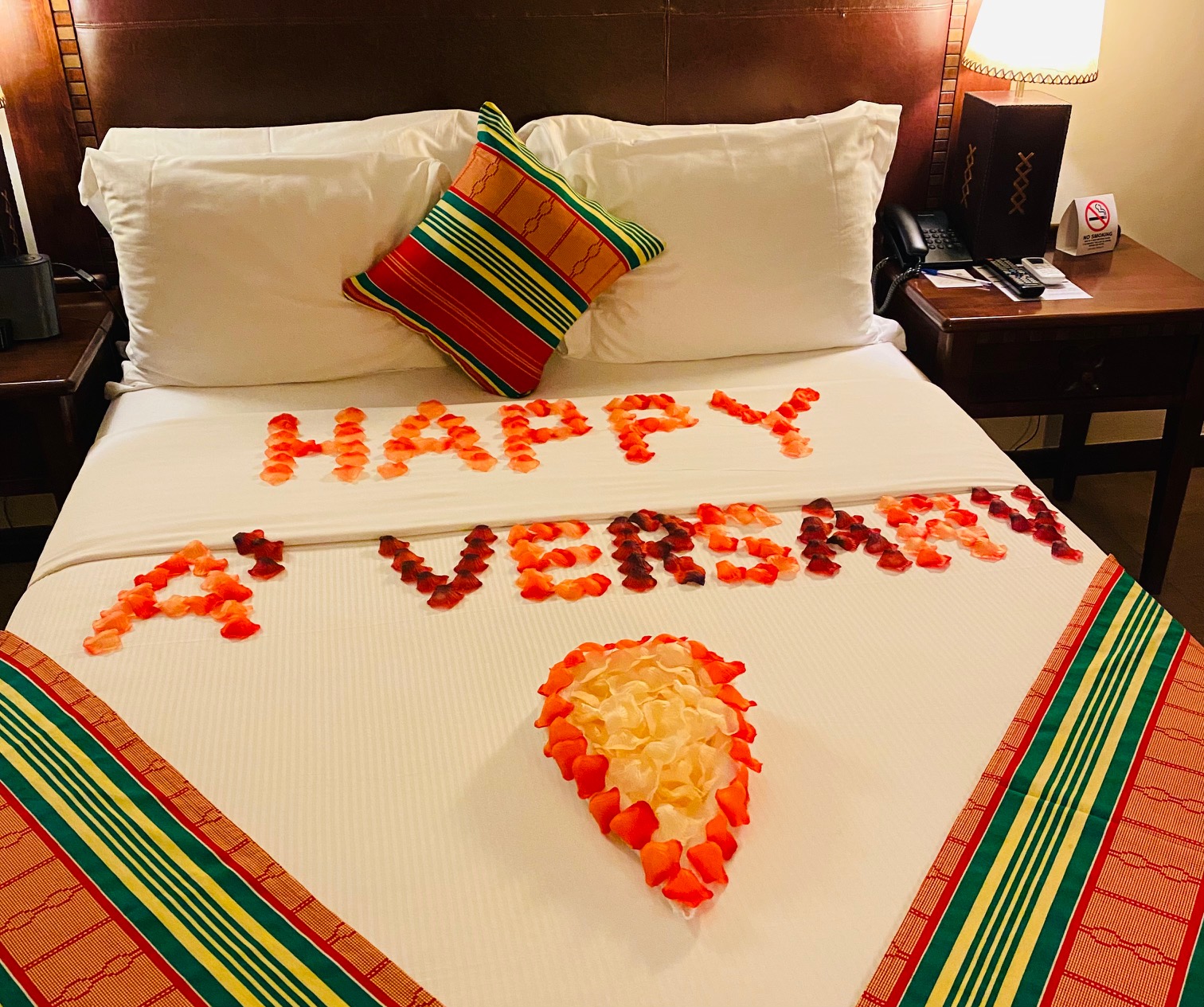
3 Secrets to Lasting 15 Years in Marriage
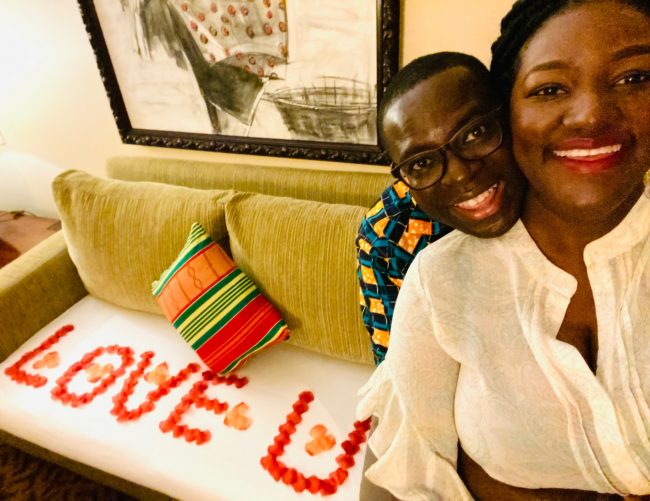
15th anniversary chilling at the African Regency Hotel, thanks to ‘friends in high places.’ Anyele was totally stunned by the decor 🙂
First of all, my wife (Anyele) and I humbly acknowledge that “15 years is nothing” compared to our parents’ (both sets) over 40 years of marriage and the 70 years some awesome couples we’ve come across have done! Wow! That’s incredible! Yet at the same time “15 years is something” considering that we’ve also come across marriages that were done, finished, caput, in months. In our short 15 years we’ve seen so many do shorter than five years, let alone 10. Fifteen? We’ve tried. We’ve even been used by God to salvage some marriages but have also heartbreakingly seen others dashed right before our eyes despite our efforts.
Secondly, I’m very wary of ‘3 secrets,’ ‘7 keys,’ ’10 ways,’ ’12 steps’ and what have you. So why am I sharing ‘3 Secrets to Lasting 15 Years in Marriage’? Well, Anyele and I just clocked 15 years on August 12, 2021. For us, the bottomline is God’s grace–and right from the start Prof. Kwaku Osam of Legon Interdenominational Church had told us during our pre-marital counselling sessions that “there is a grace for marriage” and we claimed it–in good measure. Maybe it’s true after all, but the thing about grace is that it works; and it has to be worked. Allow me to share three means of that grace for marriage that have made us largely survive (and even thrive in certain specific areas). No, I wouldn’t saddle you with ’15 lessons I have learned in 15 years of marriage’ so be grateful for just three (Lol!).
When we clocked 10 years the main thrust of our marriage lessons thus far was that marriage is the greatest character-forming school ever–even more than med. school. I’ve been to both marriage school and medical school so trust me, I know what I’m talking about! We called it the #1 Marriage Lesson That Nobody Talks About Much. That blog really seemed to resonate with the 50,000 or so it reached within weeks, thanks to social media, and was reproduced on some prominent news agency websites. It made me realize I shouldn’t play down on these key lessons, no matter how few and unwow, no matter how seemingly insignificant, no matter how humble they may be. You might scorn them; they might be life-saving for someone else.
Between year 10 and year 15, we have seen many people get married. Sadly we’ve not only seen many separations first-hand, we’ve witnessed more finalized divorces than within our first 10 years–real people, not just statistics. These three things I’m going to share have been a means of grace for us to do 15 years, especially the last five: Caring Counsellors, Close Cohorts, Cool Tools.
CARING COUNSELLORS
The most stupid thing I’ve done in marriage has been to not seek professional counselling till after year 10. We certainly have never brought any marital issue to any of our parents–it’s a no, no for many reasons that warrant a whole blog. I’ve come to realize, though, that there are certain issues that can never be well resolved between just the couple without a third wise party who is close enough (caring) yet far enough (outside the cleavage of man and wife) to be able to see clearly and share candidly. The notion, or even culture, that suggests that seeking professional counselling means one is weak or sick is toxic, it kills. Even if one were weak and sick, that’s fine too (everyone is at some point in our frail humanity and wretched world). We have seen people reach out when it was too late to salvage a totally hitherto salvageable situation (in our opinion).
Whether it’s through our conversations, their conferences or media (from books to YouTube videos), we really want to thank God for giving us the benefit of having Pete & Geri Scazzero (see picture above), Gerry & Kathy Kraemer, Carsten & Linda Pellman and indeed Shepherd’s Heart Ministry.
Apart from the listening ear, emphatic heart and vulnerable sharing of these caring counsellors, the ‘cool tools’ we’ll be sharing shortly have largely been learnt from them. An underlying paradigm that has buoyed everything else has been the Scazzeros ramming into our heads and hearts to lead in ministry and the marketplace out of the strength of our marriage, not out of the stress/strain of it–or even the death of it.
Of every single one of the divorces I’ve witnessed at close range, the couple did not have clear, regular, serious mentoring relationships. It’s worse when the man especially submits to no one on earth and is a law onto himself. Ha!
CLOSE COHORTS
You think the things you’re going through are unique to you until you are vulnerable to share with a close community of others. This must be a close community you can be vulnerable in because you are contemporaries (all in a similar stage in life), and are all truthful, honest and committed to the institution of marriage and the principles that make it work.
On WhatsApp, Anyele and I have labeled that close cohort, “inner circle.” We inspire, encourage, teach, tease, correct, rebuke and hold each other accountable. On occasion we meet in person (see picture above). God bless Nana Yaw & Beth Offei-Awuku, Victor & Esi Obeng, Amos & Evelyn Kevin Annan, and Franklin & Amma Eleblu. Franklin is my best friend, was my best man when we got married and soon after became my brother-in-law too!
COOL TOOLS
“Love your wife, Yaw.”
“OK, thank you very much. I would like to.”
“Very good.”
“But how?”
“Just do it! Obey the Bible.”
One thing I like about Westerners is their propensity to develop tools to make life a little easier. The Physics I recall says a tool is something to make work easier, any work, but especially hard work. Marriage is work, hard work. How then do we dare think we can make it without tools? There are many marriages that shouldn’t have ended if only the two involved had some of these cool tools.
This year I decided to run Family Foundations Masterminds and share some of these tools like the Community Temperature Reading, 10/10, Genograming Your Family, Family Vision & Mission Statement, Mapping out Emotional Needs & Action Points etc. Even in fighting, there is a tool to fight cleanly! The Kraemers, Scazzeros and Pellman’s, together with Shepherd’s Heart Ministries have blessed us with all these tools! People, we’ve got to invest time, attention and finances in our marriages to obtain and utilize such tools.
CONCLUSION
On this occasion of our 15th anniversary, it’s really a celebration of Ubuntu–we are because YOU are. Anyele and Yaw will have no marriage but for the community of caring counsellors and close cohorts with cool tools. We’ve not made it because we’re super smart, über skilled and have impeccable character. No. We feel overwhelmingly thankful for the cool tools and community of counsellors and cohorts–three secrets to lasting 15 years (and more) in marriage.
PS. You may find a seven-minute video of the essence of this article here.
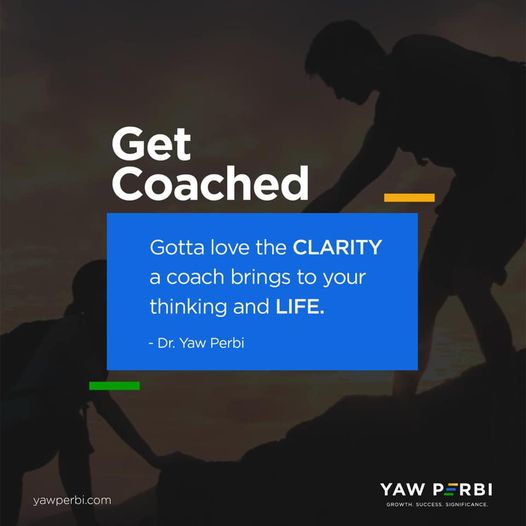
50 Shades of Coaching
Here is a list of about 50 kinds of coaching:
❖ Academic Coaching: Helping One Achieve Academic Excellence
❖ ADD/ADHD Coaching: To Understand the Most Common Learning Disorder – Attention Deficit Disorder / Attention Deficit Hyperactivity Disorder
❖ Alternative Lifestyle Coaching: To Get You Motivated, Strengthen Your Commitment and Re-align Your Goals
❖ Athlete Coaching: To Help Athletes Live a Balanced Life, Both Personally and Professionally
❖ Assessment Coaching: Walking Through Behavioral, Personality and Other Assessments Like the DISC
❖ Bereavement Coaching: Walking Through Painful Events with a Like Mind
❖ Business Coaching: Your Way to Business Success
❖ Career Coaching: Your Way to Fulfilling Your Financial Dreams
❖ Christian Life Coaching: Your Way to Emotional Maturity and Spiritual Fruitfulness
❖ College Entrance Coaching: Helping You Attend the School of your Dreams
❖ Communication Coaching: Opening Up the Link Between People
❖ Conflict Coaching: Working One on One to Achieve Balance
❖ Co-Parenting Coaching: Helping Divorced Parents Create a Positive, Workable Parenting Relationship
❖ Couples Coaching: Improving Communication Between Partners
❖ Creativity Coaching: Creative Struggle is Integral to the Life of the Artist
❖ Divine Purpose Coaching: To Re-Identify and Connect with One’s Centre
❖ Divorce Coaching: Helping People Transition to a New Life
❖ End of Life Coaching: Helping Those Left Behind
❖ Entrepreneur Coaching: For More Than Starting up a New Business
❖ Ethics Coaching: Living with Authenticity
❖ Executive Coaching: Moving the C-Suite On an Up to Take Your Team to the Next Level
❖ Family Coaching: Helping Families Work Through Difficult Issues
❖ Health and Wellness Coaching: Focusing on the Whole Being
❖ Holistic Health Coaching: Finding the Light at the End of the Tunnel and Balancing the Mind, Body and Spirit
❖ Laughter Coaching: To Bring More Lightness and Freedom
❖ Leadership Coaching: Putting You in the Right Direction to Chart the Course for Others
❖ Life Coaching: Your Way to Personal Success
❖ Men’s Empowerment Coaching: Helping Men Succeed with Excellence
❖ Military Transition Coaching: Helping You Adapt to Civilian Life
❖ Motivational Coaching: Helping One Achieve Personal Excellence
❖ Nature Coaching: Helping to Become One with Nature
❖ New Age Coaching: Self-help and New Thought Modalities
❖ Organizational Coaching: Clearing the Way to Clarity and Direction
❖ Parenting Coaching: Helping Parents Communicate and Understand their Children
❖ Pastoral Coaching: Coming Alongside Shepherds of God’s People
❖ Peer Coaching: Coaches Coaching Coaches
❖ Personal Development Coaching: Centers Around the Aspects of One’s Personal life
❖ Personal Finance Coaching: Your Way to Financial Freedom
❖ Physician Coaching: Helping Physicians Find a New Journey
❖ Recovery Coaching: Your Way to Recovering with Success
❖ Relationship Coaching: Building Personal and Professional Relationships
❖ Retirement Coaching: Transitioning to a New Life Stage
❖ Sales Coaching: Your Way to Increased Success and Profitability
❖ Self-Esteem Coaching: Helping People with Feelings of Value and Worth
❖ Singles Coaching: Helping Singles Find Healthy, Loving Relationships
❖ Special Needs Coaching: Helping Disabled Families and Individuals
❖ Spiritual Coaching: Helping People to Connect to the Divine
❖ Stress Management Coaching: Helping People Identify and Reduce Stress
❖ Success Coaching: Your Pathway to Personal and Professional Success
❖ Transitional Coaching: Helping People Through Big Life Changes
❖ Transpersonal Coaching: Finding Your Greatest Potential
❖ Weight Loss Coaching: Discovering New Healthy Lifestyles
❖ Women’s Empowerment Coaching: Encouraging Women to Embrace Their Talents
❖Youth Empowerment Coaching: Encouraging Young People to Discover and Fulfill Their Potential
This list is an adaptation of a list of 52 Life Coaching Niches Working Miracles Everyday by our coaching partner Barbara Wainright. You may go here to download a free copy of the book to discover which coaching niche is right for you!
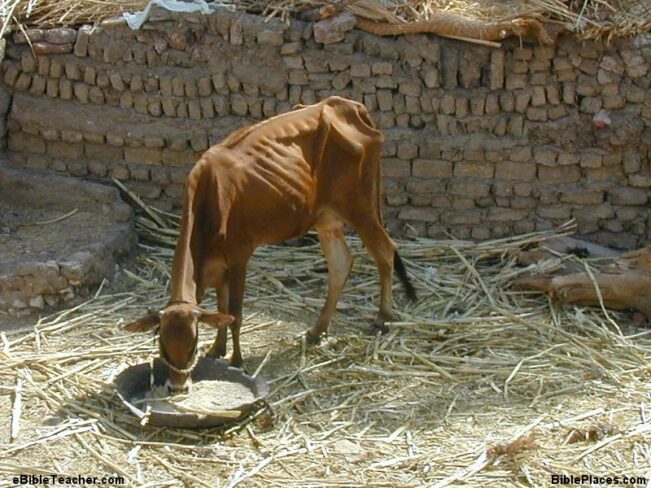
The Little Cow
The first time I heard the story about the little cow, it was from the lips of a millionaire. Gathered in the conference room of some hotel in mid-town Montrèal, this man who had made his money from the financial services industry was urging us on to let go of our little cows, mainly JOBs (which people in his circle called “Just Over Broke”) and go chasing those dreams that will stretch us, pain us but in the end be most gratifying.
Recently, I decided to search online for the story and finally found it, author unknown. Here goes.
The Little Cow – Unkown Author
A master of Wisdom was traveling through the countryside with his apprentice when they came to a small, disheveled shack on a meagre piece of farmland. “See this poor family,” said the Master, “Go see if they will share with us their food.”
“But we have plenty,” said the apprentice.
The master said, “Do as I say.”
The obedient apprentice went to the home. The good farmer and his wife, surrounded by their seven children, came to the door. Their clothes were dirty and in tatters.
“Fair greetings,” said the apprentice, “My Master and I are sojourners and want for food. I’ve come to see if you have any to share.”
The farmer said, “We have little, but what we have we will share.” He walked away, and then returned with a small piece of cheese and a crust of bread. “I am sorry, but we don’t have much.” The apprentice did not want to take their food but did as he had been instructed. “Thank you. Your sacrifice is great.”
“Life is difficult,” the farmer said, “but we get by. And in spite of our poverty, we do have one great blessing.”
“What blessing is that?” asked the apprentice.
“We have a little cow. She provides us milk and cheese, which we eat or sell in the marketplace. It is not much but she provides enough for us to live on.”
The apprentice went back to his Master with the meagre rations and reported what he had learned about the farmer’s plight. The Master of Wisdom said, “I am pleased to hear of their generosity, but I am greatly sorrowed by their circumstance. Before we leave this place, I have one more task for you.”
“Speak, Master.”
“Return to the shack and bring back their cow.”
The apprentice did not know why, but he knew his Master to be merciful and wise, so he did as he was told. When he returned with the cow, he said to his Master, “I have done as you commanded. Now what is it that you would do with this cow?”
“See yonder cliffs? Take the cow to the highest crest and push her over.”
The apprentice was stunned. “But Master…”
“Do as I say.” The apprentice sorrowfully obeyed. When he had completed his task, the Master and his apprentice went on their way.
Over the next years, the apprentice grew in mercy and wisdom. But every time he thought back on the visit to the poor farmer’s family, he felt a pang of guilt. One day he decided to go back to the farmer and apologize for what he had done. But when he arrived at the farm, the small shack was gone.
Instead there was a large, fenced villa.
“Oh no,” he cried, “The poor family who was here was driven out by my evil deed.” Determined to learn what had become of the family, he went to the villa and pounded on its great door. A servant answered the door.
“I would like to speak to the master of the house,” the apprentice said.
“As you wish,” said the servant. A moment later a smiling, well-dressed man greeted the apprentice.
“How may I serve you?” the wealthy man asked.
“Pardon me, Sir, but could you tell me what has become of the family who once lived on this land but is no more?”
“I do not know what you speak of,” the man replied, “my family has lived on this land for three generations.”
The apprentice looked at him quizzically. “Many years ago I walked through this valley, where I met a farmer and his seven children. But they were very poor and lived in a small shack.”
“Oh,” the man said smiling, “that was my family. But my children have all grown now and have their own estates.”
The apprentice was astonished. “But you are no longer poor. What happened?”
“God works in mysterious ways,” the man said, smiling. “We had this little cow that provided us with the slimmest of necessities, enough to survive but little more. We suffered but expected no more from life. Then, one day, our little cow wandered off and fell over a cliff. We knew that we would be ruined without her, so we did everything we could to survive. Only then did we discover that we had greater power and abilities than we possibly imagined and never would have found as long as we relied on that cow. What a great blessing from Heaven to have lost our little cow.”
COW & COIN CONCLUSION
Everyone of us has a little cow that stands in the way of fulfilling our full potential. So what’s your little cow? Now imagine a little child who remains tight-fisted over a quarter, a 25-cent coin, when you are eager to give them a $100 bill you’re hiding behind you and encouraging them to ‘open up’ and ‘let go’ of the quarter to receive. They aren’t able to receive the $100 because they would rather keep the little that’s surely in hand than open their palm and risk losing the quarter, although they might very well know that what they could gain might be way better.
You probably have heard it said that often the enemy of the best is the good. What is your little coin or little cow. Let it go; kill it!
Accountability Questions | Being Answerable.
Whether one-on-one or in a small group of men or women who meet regularly and hold each other accountable, these questions peel your onions to authentic living, layer after layer. From John Wesley (1703-1791) to modern day thought leaders like Chuck Swindoll, there are poignant questions to give handles to accountability relationships, processes and environments. These compiled lists below are from Cultivating a Life for God (Church Smart Resources 1999 pp.125-131).
John Wesley’s Small Group Questions for Accountability:
1. Am I consciously or unconsciously creating the impression that I am better than I am? In other words, am I a hypocrite?
2. Am I honest in all my acts and words, or do I exaggerate?
3. Do I confidentially pass onto another what was told me in confidence?
4. Am I a slave to dress, friends, work , or habits?
5. Am I self-conscious, self-pitying, or self-justifying?
6. Did the Bible live in me today?
7. Do I give it time to speak to me everyday?
8. Am I enjoying prayer?
9. When did I last speak to someone about my faith?
10. Do I pray about the money I spend?
11. Do I get to bed on time and get up on time?
12. Do I disobey God in anything?
13. Do I insist upon doing something about which my conscience is uneasy?
14. Am I defeated in any part of my life?
15. Am I jealous, impure, critical, irritable, touchy or distrustful?
16. How do I spend my spare time?
17. Am I proud?
18. Do I thank God that I am not as other people, especially as the Pharisee who despised the publican?
19. Is there anyone whom I fear, dislike, disown, criticize, hold resentment toward or disregard? If so, what am I going to do about it?
20. Do I grumble and complain constantly?
21. Is Christ real to me?
Wesley’s Band Meeting Questions for Accountability:
1. What known sins have you committed since our last meeting?
2. What temptations have you met with?
3. How were you delivered?
4. What have you thought, said, or done, of which you doubt whether it be sin or not?
5. Have you nothing you desire to keep secret?
Reference: John Wesley’s Class Meetings: a Model for Making Disciples, by D. Michael Henderson, Evangel Publishing House, 1997, pp. 118-9
Chuck Swindoll’s Pastoral Accountability Questions:
In his book, The Body, Chuck Colson lists the questions used by Chuck Swindoll:
1. Have you been with a woman [really, any gender!] anywhere this past week that might be seen as compromising?
2. Have any of your financial dealings lacked integrity?
3. Have you exposed yourself to any sexually explicit material?
4. Have you spent adequate time in Bible study and prayer?
5. Have you given priority time to your family?
6. Have you fulfilled the mandates of your calling?
7. Have you just lied to me?
Neil Cole’s Five Accountability Questions:
1. What is the condition of your soul?
2. What sin do you need to confess?
3. What have you held back from God that you need to surrender?
4. Is there anything that has dampened your zeal for Christ?
5. Who have you talked with about Christ this week?
Church Multiplication Associates 10 questions for Accountability.
1. Have you been a testimony this week to the greatness of Jesus Christ with both your words and actions?
2. Have you been exposed to sexually alluring material or allowed your mind to entertain inappropriate thoughts about someone who is not your spouse this week?
3. Have you lacked any integrity in your financial dealings this week, or coveted something that does not belong to you?
4. Have you been honoring, understanding and generous in your important relationships this past week?
5. Have you damaged another person by your words, either behind their back or face-to-face?
6. Have you given in to an addictive behavior this week? Explain.
7. Have you continued to remain angry toward another?
8. Have you secretly wished for another’s misfortune so that you might excel?
9. Did you finish your reading this week and hear from the Lord? What are you going to do about it?
10. Have you been completely honest with me?
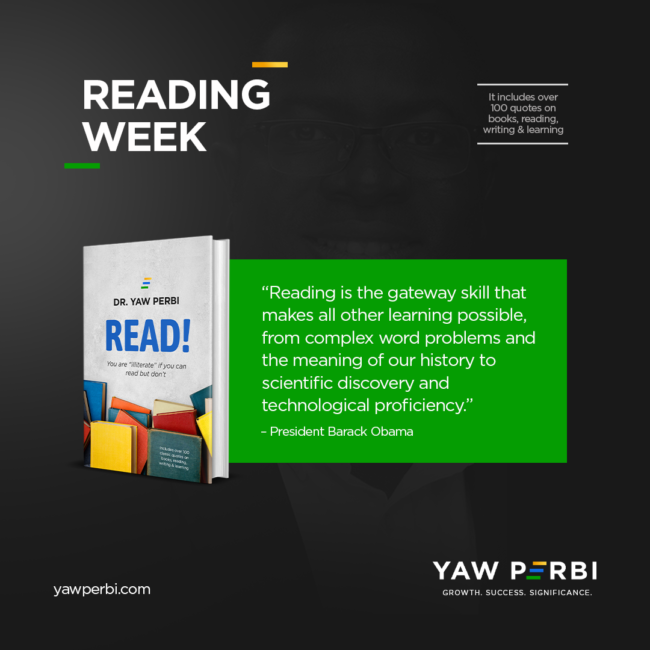
I Used Not To Like Reading. Two Statements Changed Everything.
I wouldn’t be where I am today but for books. I mean precious books like the Holy Bible (which I’ve read cover-to-cover about 10 times), Rich Dad Poor Dad (Robert Kiyosaki), The 7 Habits of Highly Effective People (Stephen Covey), The Purpose-Driven Life (Rick Warren), Before You Say I Do (Yaw Boamah), The 21 Irrefutable Laws of Leadership (John Maxwell), The E-Myth (Michael Gerber), The Prayer of Jabez (Bruce Wilkinson), Create Your Own Future (Brian Tracy), The Emotionally Healthy Leader (Peter Scazzero) etc. My life five years ago is totally different from my life now—and so was my life five years prior to that totally different—just because of the books I’ve read.
Consequently, for a decade-and-a-half now I’ve been a serious reading campaigner. Now, not only have I grown further fierce in campaigning for people to love reading, my wife and I have stepped up by stepping down. What I mean by that is, we’ve enhanced our campaign but decided to go further down to the age where humans are most pliable: childhood. And we began with our own seven children. This is the philosophy behind Perbi Cubs Library Services. You may find the story behind Perbi Cubs here.
But being a reading enthusiast, let alone champion, hasn’t always been so. I used not to like reading, at all! Then two statements hit me hard and totally shifted my paradigm, absolutely altering my way of thinking.
THE ‘RACIST’ & ‘TREMENDOUS’ STATEMENTS THAT CHANGED EVERYTHING
The first statement, I randomly encountered on the internet. I was but a youth then. As I confess in my book READ!, “I was so angry my intestines could have gushed out. If I were light skinned my face would’ve turned tomato-red instantaneously. Yet deep, very deep down my heart I knew there was a truth in this almost racist statement glaring at me from the computer screen.” This is what it said: “THE BEST WAY TO HIDE SOMETHING FROM BLACK PEOPLE IS TO PUT IT IN A BOOK!” Ah! Upsetting! Yet in many ways this is true, I’m ashamed to admit: We don’t read!
The other paradigm-knocking statement was Charlie ‘Tremendous’ Jones’ rather prophetic pronouncement: “You will be in five years where you are today except for the people you meet and the books you read.”
These two statements turned my life around to not only become a voracious reader and prolific writer, but an advocate of the same!
WHAT IS READING?
We all have read (or even still reading even right now) academic or technical texts to pass an exam or for promotion, for professional growth etc. That is not what I mean by my read campaign. When I speak of reading I mean leisure reading. Also known as “recreational reading, pleasure reading, free voluntary reading, and independent reading,” it is “independent, self-selected reading of a continuous text for a wide range of personal and social purposes. It can take place in and out of school, at any time” (International Reading Association).
Samuel Johnson shares the following sentiments: “A man ought to read just as inclination leads him; for what he reads as a task will do him little good.” I get him. Leisure reading must be voluntary and pleasurable–not just a chore–if it is to benefit us maximally.
WHY MANY ARE SCHOOLED BUT STILL “ILLITERATE”
Several of us who have learnt “ABCD…” and can practically function simply do not read. In my book READ!, first published in 2005, here’s my thesis: If you know how to read and you don’t, you are no different from the illiterate! The bottom line is the same: you both don’t read! That’s why the subtitle of the book is “You are an “illiterate” if you can read but don’t.” Many years ago Mark Twain put the same idea this way: “The man who does not read good books has no advantage over the man who cannot read them.”
CONCLUSION
If it’s any comfort to you, a guy who used not to like reading today reads several books at the same time! Even further, I’ve acquired this new habit of writing several books at the same time too! Something you need for your future to happen is hidden in a book near you. As they say at Perbi Cubs, “success is just a book away.” And it’s true. If you don’t believe Perbi Cubs or Charlie ‘T’ Jones, take it from me.
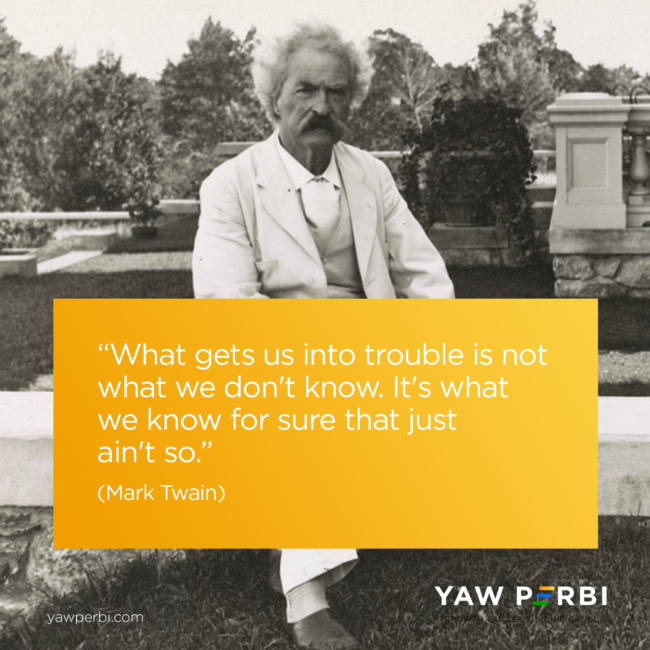
A Way to Prevent Heartbreak: Clarify Expectations
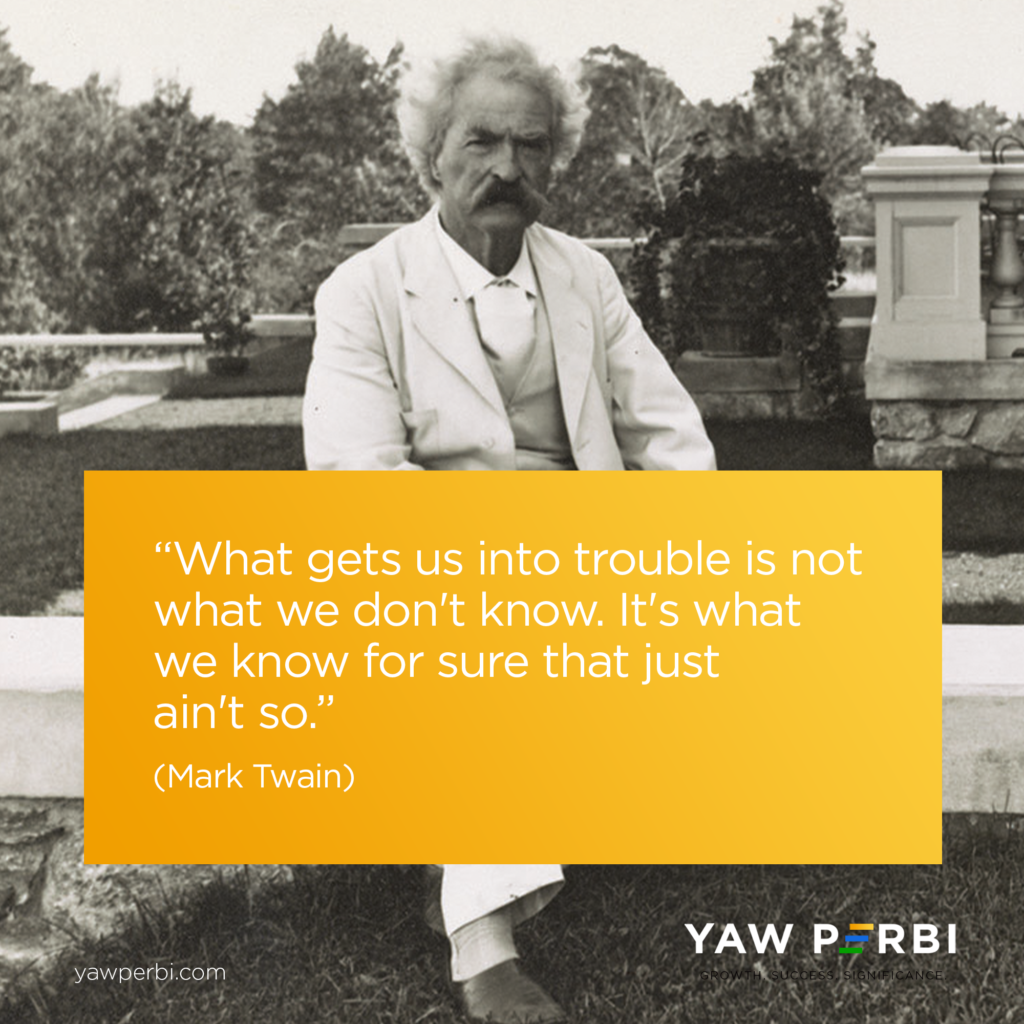
While what you don’t know may kill you; what you think you know but really don’t may kill you faster!
I have wanted to talk about this for months–how to prevent unnecessary hurt from unmet expectations–but last week an incident happened with one of my associates that really catalyzed me to share this urgently. So let’s talk about unmet expectations.
Whether it’s between spouses, parent and child, boss and workers or even among co-workers, family folk and church members, this is quite a common occurrence. This is particularly so African, Chinese, Japanese and Korean cultures that employ indirect communication. If you’re like me, you’ve probably been hurt before by unmet expectations. In fact, sometimes we don’t even realize we had an expectation until it was not met!
Mark Twain once said, “What gets us into trouble is not what we don’t know. It’s what we know for sure that just ain’t so.” We tend to have expectations that are unconscious, unrealistic, unspoken and unagreed upon. Let me share how you can flip these four things around and protect your heart against heartbreaks from unmet expectations. I owe this life-saving lesson from my New Yorkan mentors, Pete and Geri Scazzero.s
THE MILLION DOLLAR QUESTION
How do you know your expectations are valid or not? As hard-to-take as this may seem, when the expectation is unconscious it is invalid. In fact, if even we don’t even know we have them until we are disappointed how on earth is the other person supposed to know and meet it? When it is unrealistic it is invalid as well. Even if it is reasonable and we are conscious of it but it has not been articulated, it is still invalid. The common lame excuse we tend to give is, “Oh, but they should know?!”
In the event that our expectations meet all the above three criteria–conscious, realistic, spoken–but the other party has not agreed to them, they are still invalid. While this may seem very Western, I have learnt as an African-Canadian that it is never wise to assume agreement!
Of course, important caveats include marriage (where the vows already spoken have created certain clear expectations like fidelity), parent-child relationships (expectation of chores) and employer-employee dynamics where expectations have been clearly laid out in contracts and policy and supposedly read and accented to. Even in these relationships with broad-stroke expectations, situations occur that demand clarifying expectations further.
WHAT TO DO TO FORESTALL HEARTBREAKS
To prevent heartbreaks from unmet expectations, ensure your expectations are:
(1) Conscious: I am aware of my expectation.
(2) Realistic: I have evidence to support that the expectation is reasonable in the sense that the other is able and willing.
(3) Spoken: I have expressed the expectation clearly.
(4) Agreed Upon: The other person has agreed to the expectation by saying “yes.”
I would highly recommend you take the Scazzero’s Emotionally Healthy Relationships course for a full meal and good skill-building in this area they call Stop Mind Reading and Clarifying Expectations.
WHAT TO DO WHEN HURT HAPPENS
In the event that hurt still happens from unmet expectations, valid or not, REFRAMING the painful experience is everything. As John Maxwell renders it in the Law of Pain, “good management of bad experiences can lead to growth.” Reframe the painful experience as follows (modified from a Maxwell process):
a) Define the problem –> The painful situation I need to process right now is…
b) Understand your emotion –> My feelings about this are…
c) Articulate the lesson –> My lessons in is this are…
d) Identify a desired change –> The changes I want to effect are…
e) Brainstorm numerous pathways –> The ways out are…
f) Receive others’ input –> What I’m learning from others is…
g) Implement a course of action –> My course of action is 1. Embrace the reality of pain 2. Learn my lesson(s) 3. Share my lessons 4. Change a. ______ b. ______ c. ______ d. _____.
CONCLUSION
You know what they say happens when you assume: you make an ass of u and me. An expectation is only valid when it is mutually agreed upon. Let’s do less heart damage by providing and demanding clear expectations of others. Let’s ensure in all our relationships that our expectations are conscious, realistic, articulated and agreed upon. And when things fall through the cracks and we feel the sting of pain from unmet expectations, let’s reframe the experience well so we can still grow and flourish.

